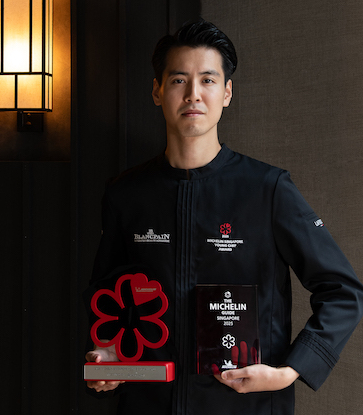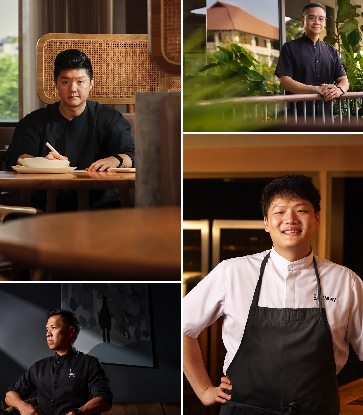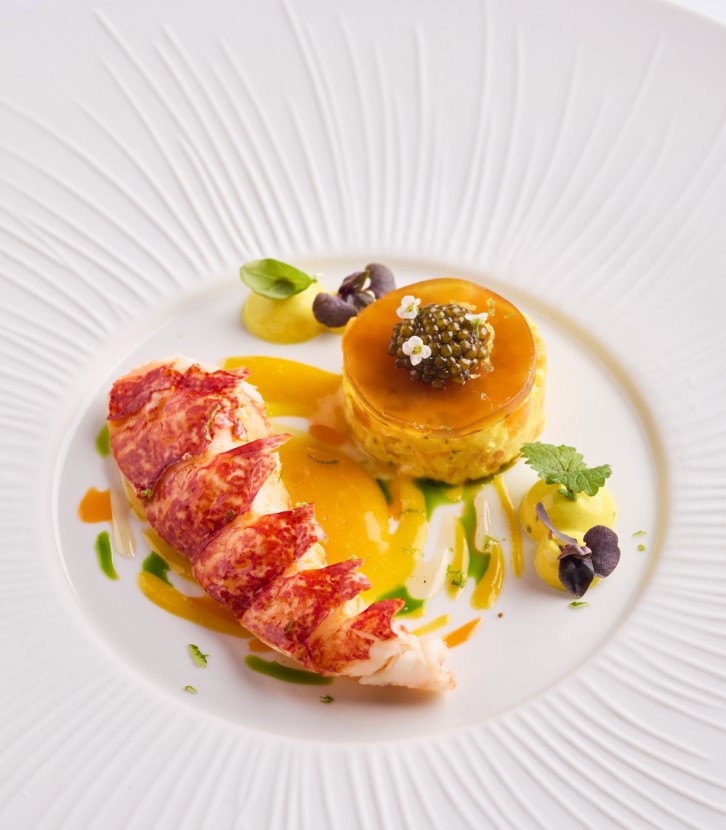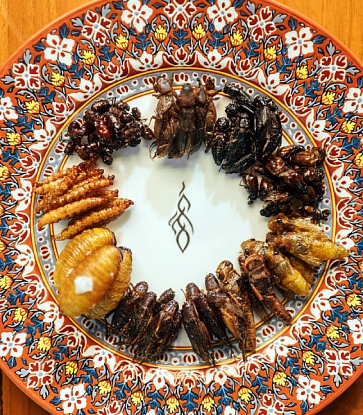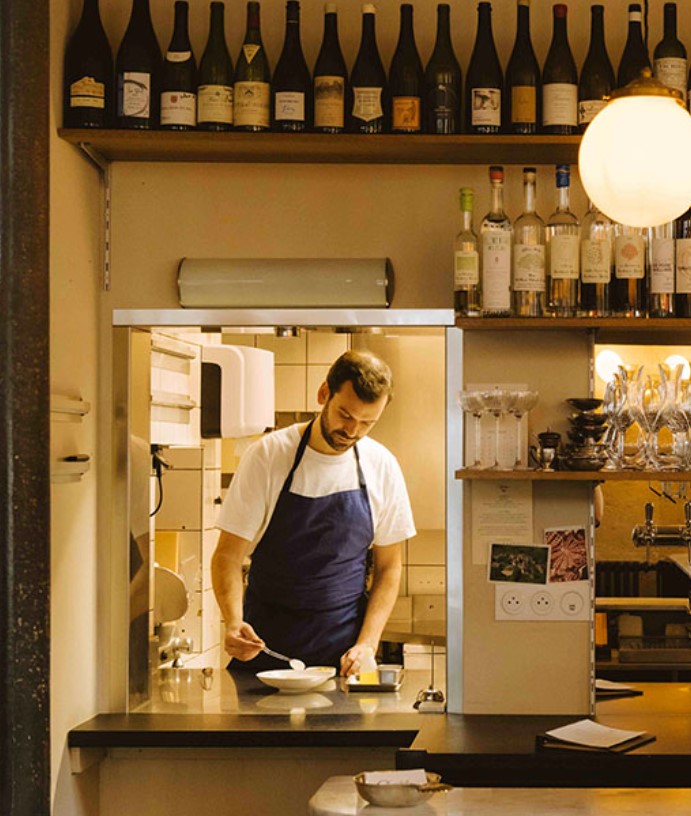"I haven't been back since I left, and I thought this would be the perfect place," explains the 38-year-old English chef. He and Desfonds spent three years with Au Petit Salut working for owner of the Salut Group Low-Ang, whom they eventually formed a close relationship with. In 2013, after a discussion with Low-Ang, the trio decided to set up a new small fine dining venture that would cater to every individual's needs.
A tightly-curated menu featuring seasonal produce, along with a stellar wine list – that was what they wanted. And that's the story of how French restaurant Rhubarb – which recently received one Michelin star – was born.

“When I was about 18, my best friend at that time told me about this apprenticeship opportunity with Conran Restaurants in London. Every year they’d choose eight people to train and after all that they’d put them in different restaurants under the group. I literally just showed up and said that I was here to try out for the apprenticeship, and I did it – I got it. I was very, very fortunate,” Longworth recounts.
Despite such training, he counts his biggest inspiration to be his grandmother.
“I come from a single-parent family and my dad – an extremely hardworking man – had a job in the day and one at night, so growing up my grandmother really took care of my sister and I,” Longworth says. His childhood memories include baking sweet treats with his grandmother and licking the cake bowl – something he says he doesn’t do anymore. “Disgusting. Raw flour, raw eggs… ugh!” he laughs.

“A contemporary approach to French gastronomy” – that’s how Longworth describes his style. He usually sticks to the French way of crafting plates in the kitchen, but he doesn’t deny that for some of his dishes, there’s a little twist.
“At Rhubarb, one dish that hasn’t changed at all is the dessert of rhubarb and custard. It’s a throwback to my childhood and the sweets I’d enjoy as a kid. It features rhubarb in various forms (poached, sorbet) and vanilla custard. But not just any custard, not the French creme anglaise, but custard made using Bird's Custard powder. So what you get is a dish that’s French in terms of technique, but pretty English in terms of taste,” he adds.

And while some may see this global issue as a problem, Longworth chooses to adopt a more positive mentality. “A challenge – that’s what it is. Now we must get creative and think of ingredient substitutions, finding other sources, whether to utilise local produce or turn to farms… it’s exciting,” Chef remarks before pointing out how he does things like visit wet markets in Singapore several times a week to find certain things he needs for the Rhubarb kitchen – somewhere he spends an awful lot of time in.
“I have to, and because of that I don’t have a lot of time to do other stuff like pick up a new hobby or whatever,” says Longworth. Then he goes on to give special mention to his team, who work just as hard. “The people I have in my kitchen, I wouldn’t want to change any one of them. They make me really happy. I can’t answer the question of how “I” felt when “I” got “my” Michelin star. No. We all earned that star together. It’s a team effort,” he says.
Favourite local stall: “Foong Kee on Keong Saik Road. It’s quite close to my restaurant and to me, for roasted meat – especially pork – it is, hands down, one of the best in Singapore.”
Guilty pleasure: “Beer. My top choice would be an Old Speckled Hen.”
Biggest pet peeve: “When people don’t remove the cling film off a container and just puncture it or unwrap it halfway. That actually gets me a bit riled up.”




